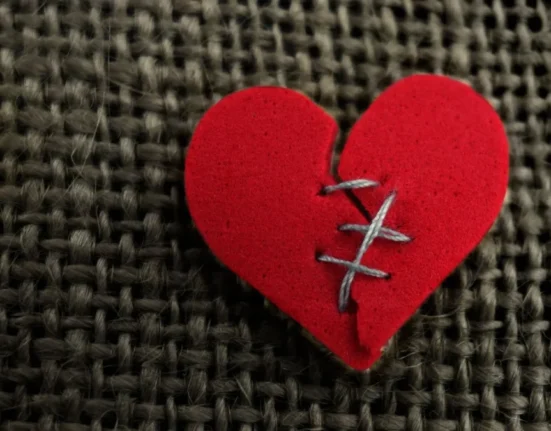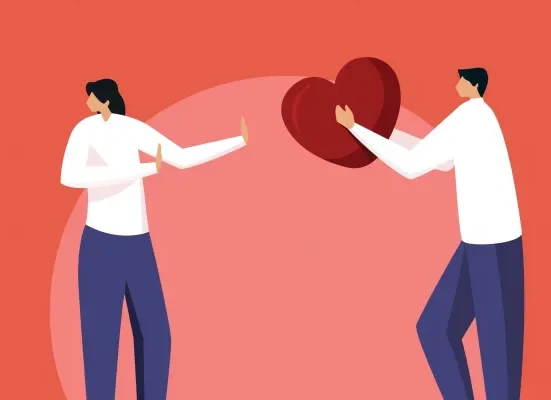Last Updated on April 14, 2025 by Rachel Hall
7 Subtle Signs Your Relationship Is Coming to an End – A Psychologist’s Insight Into Heartbreak and Emotional Distance With Your Partner
Every relationship faces its fair share of ups and downs, but there comes a point when the issues run deeper than temporary frustration. While some relationships end in explosive conflict, many slowly erode in subtle and silent ways. These changes are often hard to pinpoint — until you’re already living in the aftermath of a breakup.
In this guide, I’ll help you recognise the subtle signs that your romantic relationship may be coming to an end. Drawing on insights from psychologists, relationship studies, and emotional experience, we’ll cover the most common and concerning signs — and what they might mean for your future.
Let’s explore 7 subtle signs that a relationship may no longer be serving you.
1. Conversations Feel Like a Chore
In a healthy relationship, conversation should feel engaging, natural, and emotionally safe. You don’t need to be soul-searching every night, but when even small talk feels forced, drained of energy, or transactional, it could be a sign of something deeper.
You may notice:
- You’re no longer sharing thoughts or updates with your partner.
- Engaging conversations are replaced with silence or short, dismissive responses.
- You feel relief when you don’t have to talk.
This is more than just being tired — it’s emotional withdrawal. Communication is key in maintaining closeness, and when it starts to fade, so does your connection.
Insight:When conversation becomes work, it reflects a lack of emotional safety or desire to connect — both essential for long-term relationship satisfaction.
2. Future Plans Are No Longer Part of the Picture
In thriving relationships, couples dream and plan together. From holidays to buying a house, the willingness to discuss future plans reflects commitment and long-term thinking. But when those conversations dry up, it often signals detachment.
Your partner may:
- Avoid conversations about the future altogether.
- Make independent decisions without including you.
- Seem vague or even irritated when you bring up plans.
If you used to talk about “us” and now it’s mostly “me”, this is a shift worth noting. In many cases, it’s a subtle sign that your partner no longer sees a shared path forward.
It’s a sign that needs attention, especially if you’ve started noticing a pattern of evasiveness or emotional distance in other areas, too.
3. Physical and Emotional Intimacy Has Faded
Intimacy in a real relationship goes beyond sex. It includes affection, vulnerability, humour, and the safety to be yourself. When physical intimacy — like hugging, kissing, or cuddling — disappears, it’s not just physical disconnection. It’s emotional distance.
You may notice:
- Touch feels awkward or obligatory.
- Inside jokes don’t land the way they used to.
- Eye contact becomes rare.
- You’ve stopped making an effort to connect romantically.
Sometimes, these changes happen gradually. But when both physical and emotional intimacy feel absent, it may be time to have an honest look at what’s left of the connection.
4. The Silent Treatment Is the New Normal
Nothing says disconnect like silent treatment. It’s more than just needing space — it’s a form of avoidance that prevents resolution and emotional repair. This often reflects an avoidant attachment style, where confrontation is feared or avoided at all costs.
Ask yourself:
- Are conflicts now followed by days of silence?
- Do you feel you have to “earn” communication again?
- Does your partner stop responding altogether when things get tough?
If you’re constantly walking on eggshells, waiting for your partner to speak again, it’s time to ask whether you’re being emotionally shut out. Trust is the foundation of a stable partnership — and that includes trust in open dialogue.
5. Arguments Have Either Escalated — or Stopped Altogether
Disagreement is natural. The problem isn’t arguing — it’s how and why we argue. If you’re experiencing arguments that feel increasingly personal, repetitive, or unresolved, it might reflect deep-seated dissatisfaction.
Alternatively, if you’ve stopped fighting altogether, it might not be peace — it could be apathy. When happy couples stop caring enough to argue, it’s often a sign that the emotional bond has eroded.
Look for these patterns:
- The same argument resurfaces without resolution.
- You’re both silent about issues you once would’ve addressed.
- You or your partner don’t care enough to engage anymore.
Either scenario can mean that the energy to move forward together has dwindled — and the relationship is quietly collapsing.
6. You Prefer Spending Time Alone
While independence is crucial, if you constantly find yourself enjoying life more without your partner, this could be a telling change. Time apart in a healthy relationship usually brings a sense of longing. After all, absence makes the heart grow fonder. But when the time spent apart feels freeing — even like a breaker from emotional strain — this is different.
Consider:
- Do you feel more like yourself when you’re alone?
- Does spending time together feel heavy or awkward?
- Have your solo activities become your emotional haven?
If being with your partner feels more like a burden than a joy, you’re not just growing apart — you may already be living separately in emotional terms.
7. You’re Always the One Trying to Fix Things
In balanced relationships, both people put in effort. But when you find yourself trying to fix everything — the communication, the romance, the future — while your partner remains passive or defensive, the imbalance becomes exhausting.
You may be:
- Suggesting counselling or open talks — while they shut down.
- Making changes to please them but receiving no reciprocation.
- Feeling emotionally drained because you carry the entire emotional weight of the relationship.
While it’s noble to work on problems, every relationship requires mutual effort. If you’ve become the emotional caretaker of your relationship, that alone is a sign the partnership may be unsustainable.
Bonus: What Psychology Says About Recognising Relationship Decline
According to psychology, these types of subtle shifts often precede breakups. It’s not always a major event but rather a cumulative process of neglect, unmet needs, and misalignment. Leading psychologists suggest paying close attention to emotional distance, patterns of avoidant behaviour, and repeated breakdowns in communication.
These warning signs won’t always mean the relationship is doomed, but they could be a sign that it’s time to reflect, reassess, and potentially navigate your way out with honesty.
Conclusion: When It’s Time to Take a Nudge Seriously
Relationships don’t always end with grand gestures. More often, they fade through quieter behaviours and gradual detachment.
If you’re noticing these 8 signs — or even just 3 subtle ones that feel familiar — it’s not time to panic, but it is time to listen. Whether your goal is to repair or release, the first step is awareness.
Sometimes, the kindest thing you can do is let go. And sometimes, it’s simply about finding the courage to say: “This isn’t working anymore.”
Frequently Asked Questions
Q: Are these signs always a guarantee that a breakup will happen?
Not necessarily. Many of these are signals — not certainties. The key is how both partners respond once the signs are recognised.
Q: Can couples recover after these signs appear?
Yes — if both partners are willing to address the underlying issues and commit to rebuilding trust, connection, and communication.
Q: When should I seek outside help?
If you feel stuck in cycles of disagreement, experience constant dissatisfaction, or suspect an avoidant pattern, speaking to a professional psychologist or relationship counsellor can offer clarity.

Rachel Hall, M.A., completed her education in English at the University of Pennsylvania and received her master’s degree in family therapy from Northern Washington University. She has been actively involved in the treatment of anxiety disorders, depression, OCD, and coping with life changes and traumatic events for both families and individual clients for over a decade. Her areas of expertise include narrative therapy, cognitive behavioral therapy, and therapy for traumatic cases. In addition, Rachel conducts workshops focusing on the psychology of positive thinking and coping skills for both parents and teens. She has also authored numerous articles on the topics of mental health, stress, family dynamics and parenting.








Leave feedback about this